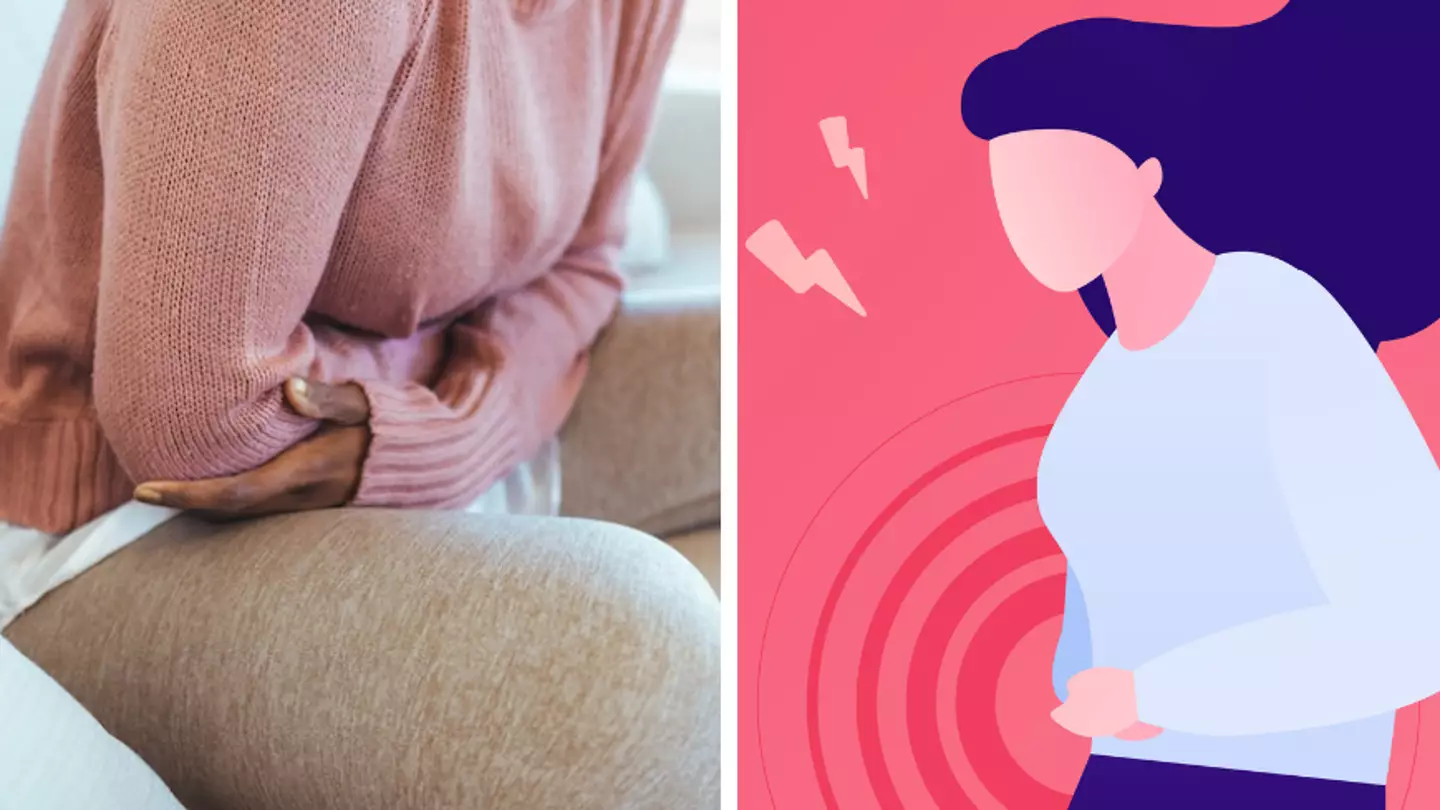
Whether it's caused by anxiety, something we've eaten, or perhaps we've had a little bit too much to drink the night before - we've all had a mean stomach ache at some point or another.
According to the NHS, most stomach pains are nothing to worry about and usually go away on their own in a few days. But, sometimes, that's not the case and you should really listen to your gut.

Typically, the location of your stomach ache can be a good indicator of what's wrong, or which organ is impacted for example.
Advert
However, the pain sensors in the abdomen are different to those on our skin. This often means that more widespread pains like a general dull ache is often less serious than the type of pain you can pinpoint with your finger.
Pain from just underneath the ribcage could be a sign of acid reflux which is caused when the muscle allowing food to flow from the oesophagus to the stomach doesn't work right. To avoid this, steer clear of certain food and drink like coffee, tomatoes, chocolate and fatty or spicy foods.
Sharp pains in the upper right side of the abdomen could be caused by gallstones which form in the gallbladder, which sits just behind the rib cage.
Often, these stones lay dormant and don't require treatment, but if they become trapped in an opening inside the gallbladder, this can trigger very sudden and intense pain in your stomach.
Advert
Take over-the-counter painkillers to help ease this kind of pain, but if it happens frequently or the pain is too severe, see your doctor immediately, as inflammation of the gallbladder (known as cholecystitis) can lead to sepsis if not treated.

Pain in the lower right side of your back could be coming from the kidneys, caused by something like kidney stones or a kidney infection. Though scary, kidney stones are actually incredibly common but can lead to intense pain, nausea, vomiting, fever and chills if not treated.
They vary in size, from as tiny as a grain of salt to as big as a golf ball. If you're experiencing large kidney stones, visit a doctor immediately for additional treatment as this can lead to infections or cause the kidney to stop working all together if it's not treated correctly.
Advert
Appendicitis is often recognised by a persistent pain in the lower right side of your stomach. Appendicitis can be fatal if not treated, as the inflamed appendix can burst. The best cause of treatment is to remove the appendix to prevent risk of infection.
Pain in the lower central part of your abdomen indicates there could be an issue with your bladder, such as a UTI (urinary tract infection). Along with this, there's usually a burning sensation when you urinate and your urine might smell unpleasant.

Staying well hydrated and taking a course of antibiotics can help rid the infection, but if your symptoms get worse over time it's best to seek immediate help from a GP.
Advert
Pain in the middle of your stomach is likely caused by the bowel - it could be trapped wind, bloating, or IBS (irritable bowel syndrome). Eating foods high in fibre can ease these symptoms, but if you believe IBS could be the cause of your problems then it's best to discuss your best course of action with your GP.
Whenever unsure about a certain feeling or pain, it's always vital to contact your GP or healthcare professional for advice.